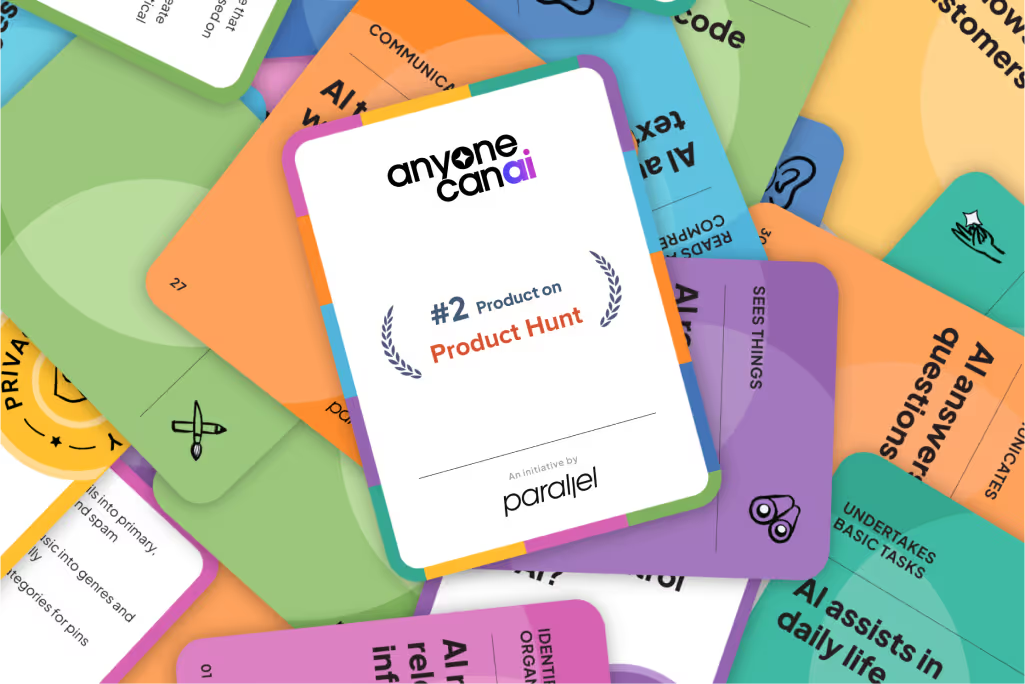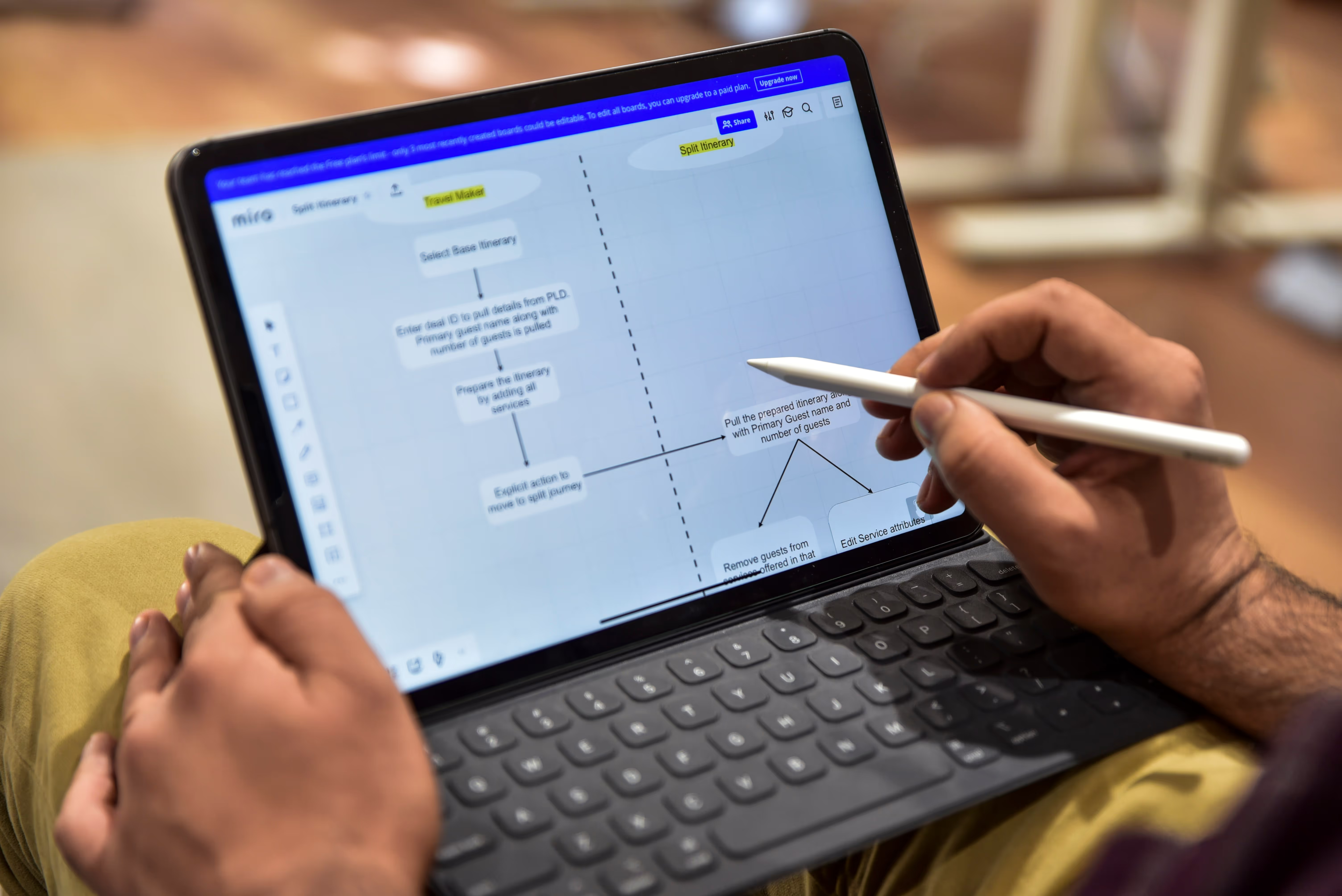Top 8 Outsourced Product Development Companies (2026)
Explore leading outsourced product development companies that offer design, engineering, and software services to accelerate product launches.

When you’re building a product from scratch, time and funds are precious. Early‑stage founders and product managers need working prototypes and proof‑of‑concepts quickly. That’s why many startups work with outsourced product development companies. By relying on remote engineering teams, contract research and development outfits, or offshore software firms, founders can ship faster without carrying every skill in‑house. Recent research shows that three in five organisations outsource application development. Meanwhile 66% of U.S. companies with more than 50 employees outsource at least one department. When budgets are tight, tapping external partners for design and build can make the difference between shipping quickly and missing a market window.
Why Do Founders and Product Managers Choose Outsourced Product Development Companies?
My team at Parallel sees founders make the same trade‑offs again and again. Instead of hiring specialists for every role—user research, interface design, testing—it often makes sense to bring in an outside partner. Outsourced product development companies provide:
- Access to product innovation and agile development. Good partners bring cross‑functional teams who know how to run sprints, test hypotheses and iterate. The 2024 State of Agile report found that agile practices accelerate design cycles by about 30% and give teams better visibility into progress. That means faster feedback loops without reinventing your own processes.
- Faster scaling through tech outsourcing services and IT consulting firms. You may need a small build for your minimum viable product (MVP) or a full stack for a scaling platform. With contractors, you can add or reduce capacity as needed without long-term commitments. Research shows that 57% of businesses outsource to increase productivity and 59% do it to reduce costs.
- Global talent and cost advantages. Offshore engineering teams offer different rate structures. Outsourcing provider Fortunly notes that the global outsourcing and shared services market is worth about US $1.09 trillion and is growing around 5.6% per year. Many early‑stage ventures use this flexibility to stretch the runway.
- More focus on core strategy. Rather than juggling design prototypes while courting investors, you can focus on customer insight and go‑to‑market decisions. External partners handle user research, wireframes, engineering and testing. My own experience shows that this clarity helps founders articulate vision while the product evolves in parallel.
These factors drive many early‑stage teams to pick outsourced partners. It isn’t only about cost—it’s about accelerating learning and avoiding months spent recruiting.
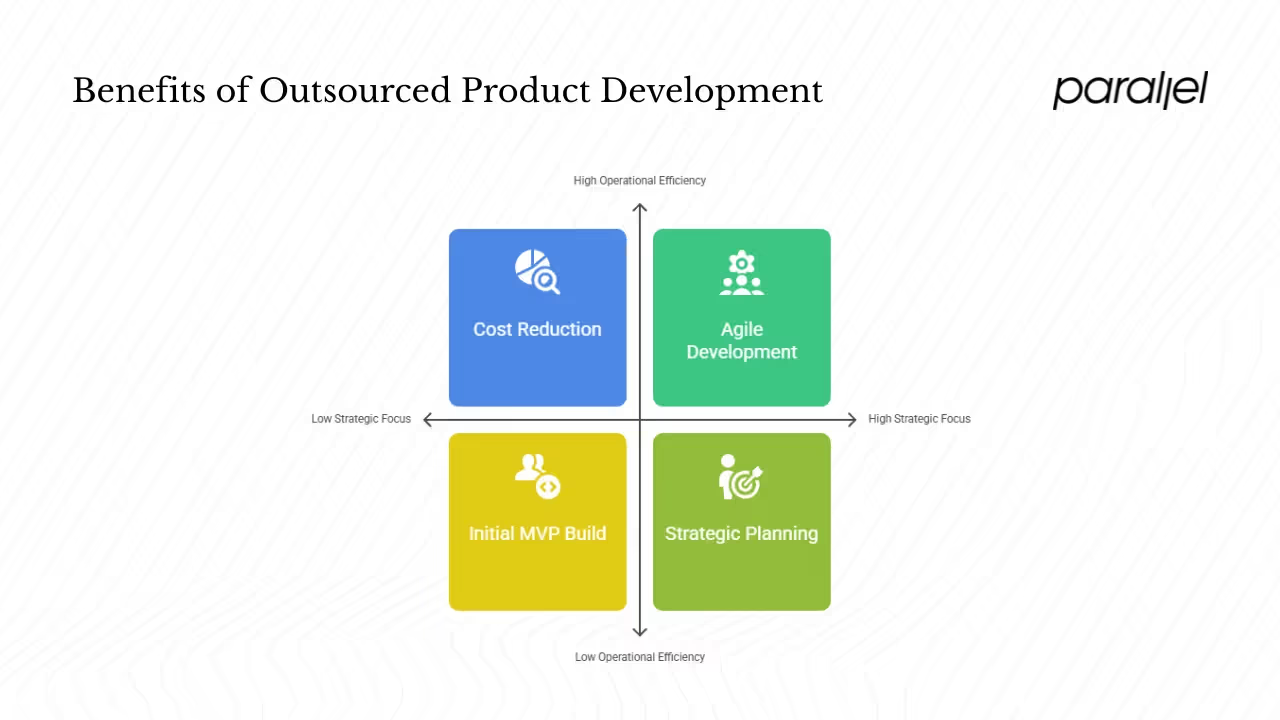
Outsourced product development companies can also help founders build cross‑disciplinary skills. When you work with an experienced partner, you witness how user researchers, designers and engineers collaborate. This exposure is valuable for early‑stage teams who may not yet have those skill sets in‑house.
Top 8 Outsourced Product Development Companies
The market is crowded. Below I’ve curated companies that we see early‑stage teams partnering with in 2025. The list starts with Parallel because you asked for it first; the rest are in no particular order. Use this overview as a starting point for deeper research. Each firm brings different strengths.
1. Parallel
Parallel is the company I run. We’re a collective of product designers and thinkers who create products used by millions. Our focus is on fast, product‑first design, not inflated deliverables. We involve founders, engineers and stakeholders in every design sprint.
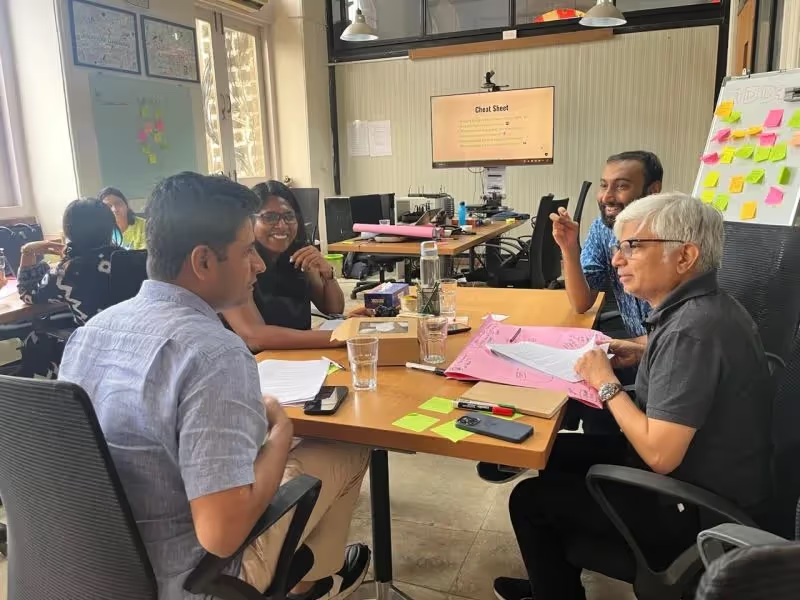
We offer user research, product design, artificial‑intelligence experiences, and discovery workshops. Founders like working with us because we operate as an extension of their team; there are no slow handovers or bloated decks—just working prototypes and clear reasoning.
2. 10Pearls
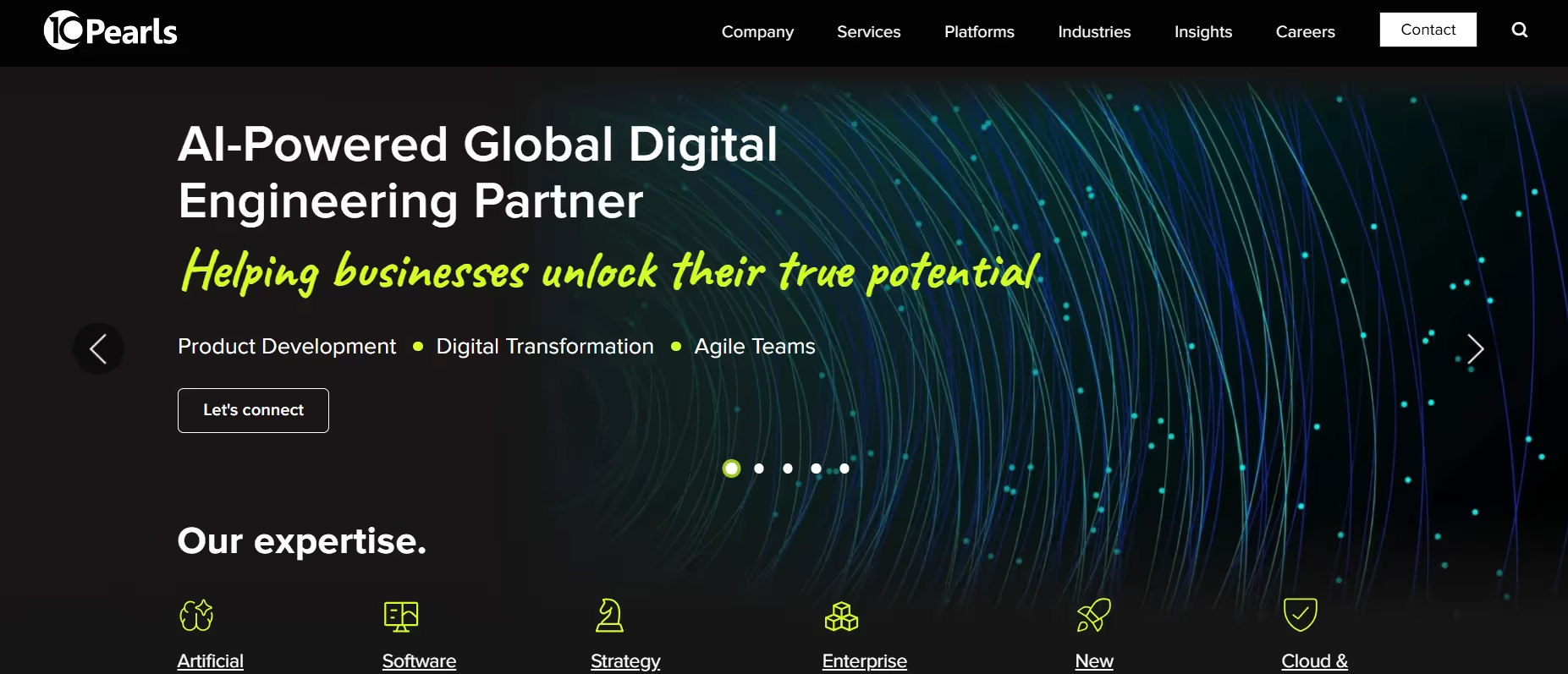
10Pearls describes itself as an AI‑powered global engineering partner. Their capabilities range from product development and user research to emerging technologies such as artificial intelligence and the Internet of Things. According to their site, 10Pearls offers new product innovation, design thinking, agile teams, software development and quality assurance, as well as business consulting and cloud security. They have a strong track record with large enterprises and emphasise scalability and cybersecurity. For founders, this breadth means you can build a new feature, integrate machine learning or plan a cloud migration with one partner.
3. EPAM Systems
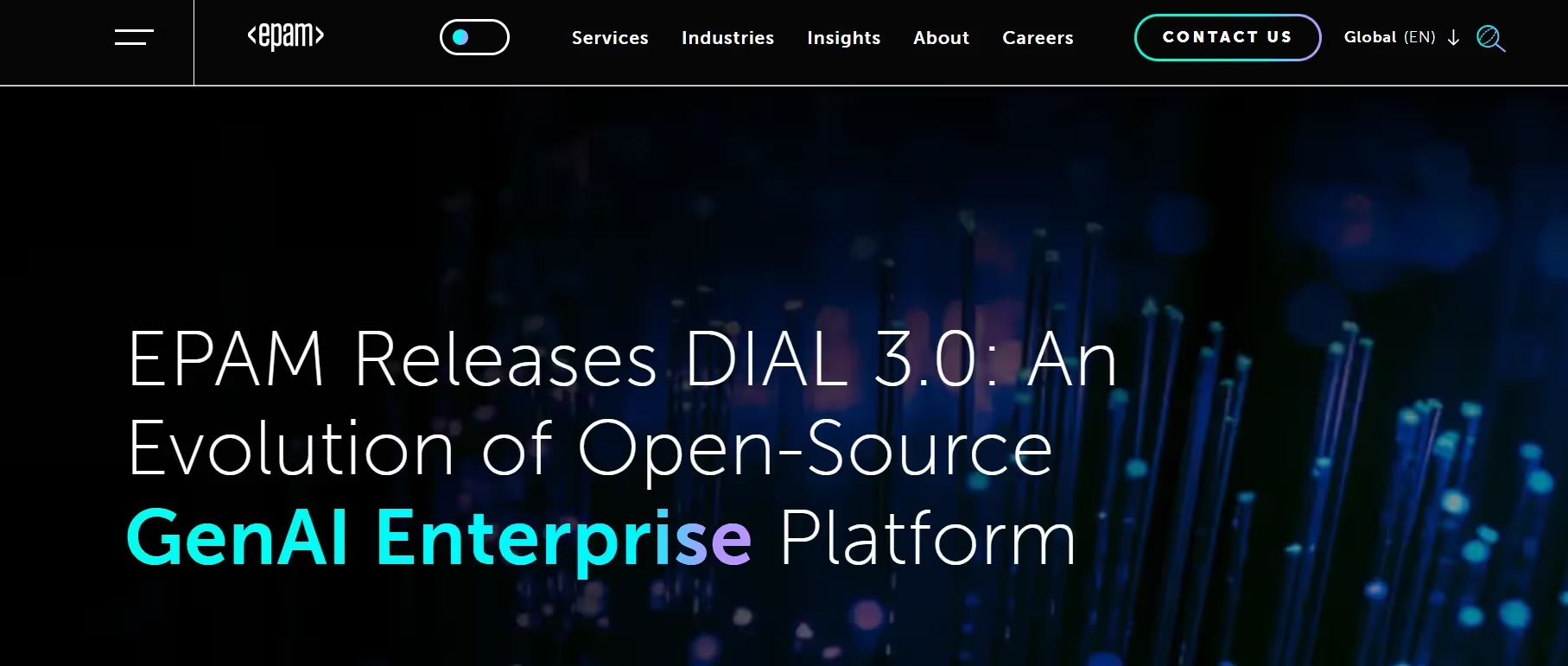
EPAM is a long‑standing technology firm founded in 1993. It specialises in software engineering services, digital platform engineering and product design. Their services include software product development, application development, testing and infrastructure. EPAM is known for enterprise‑grade work and global delivery. Early‑stage startups may find EPAM’s scale intimidating, but their expertise in platform engineering and design makes them a strong partner for complex builds or scaling established products.
4. Appnovation
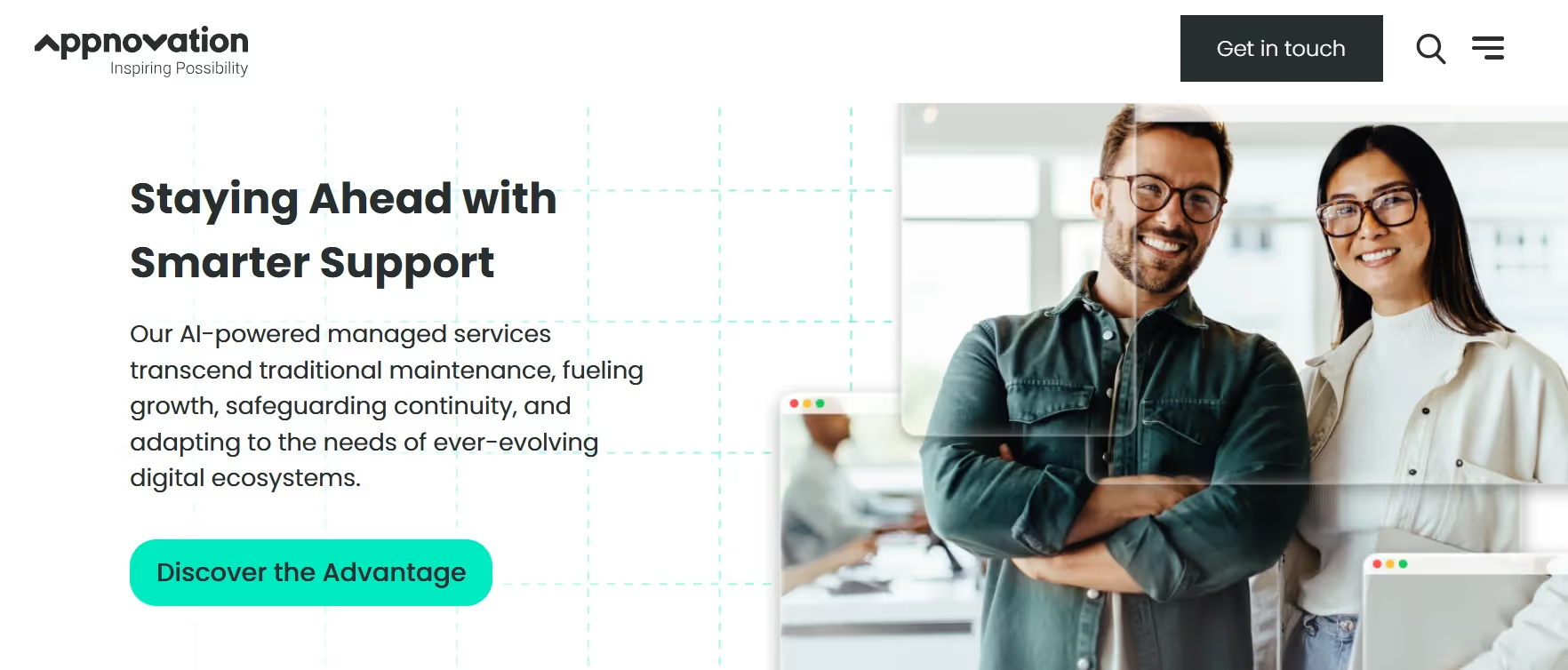
Appnovation, founded in 2007 and based in Vancouver, offers digital consulting, strategy and insights, creative and experience design, data analytics, artificial intelligence, technology and platform development. They are known for their open‑source roots (Drupal, Alfresco) and for combining design thinking with engineering. Appnovation runs projects across the globe, making them a good fit for startups seeking a partner comfortable with remote collaboration. Their balanced focus on strategy, user experience and engineering means they can guide you from discovery through launch.
5. LUNAR Design

LUNAR (now part of McKinsey) is an industrial design firm founded in 1984. They blend industrial, interaction and communication design with mechanical and electrical engineering, user validation and manufacturing support. Their client roster includes Apple, Abbott, Cisco, Hewlett‑Packard, Microsoft and Philips, which speaks to their experience. If your venture needs a physical product or a hardware‑software mix, LUNAR’s depth in engineering and manufacturing can speed up production and reduce risk.
6. RKS Design

RKS is an industrial and product design firm founded in 1980. They focus on consumer, medical and industrial products and are best known for the Teddy Ruxpin toy. RKS created a design‑thinking methodology called Psycho‑Aesthetics that explores consumer needs and emotions. This approach emphasises how a product should make users feel—useful for startups wanting to create emotional connections with customers. Their work spans toys to medical devices, making them versatile.
7. DevsData LLC
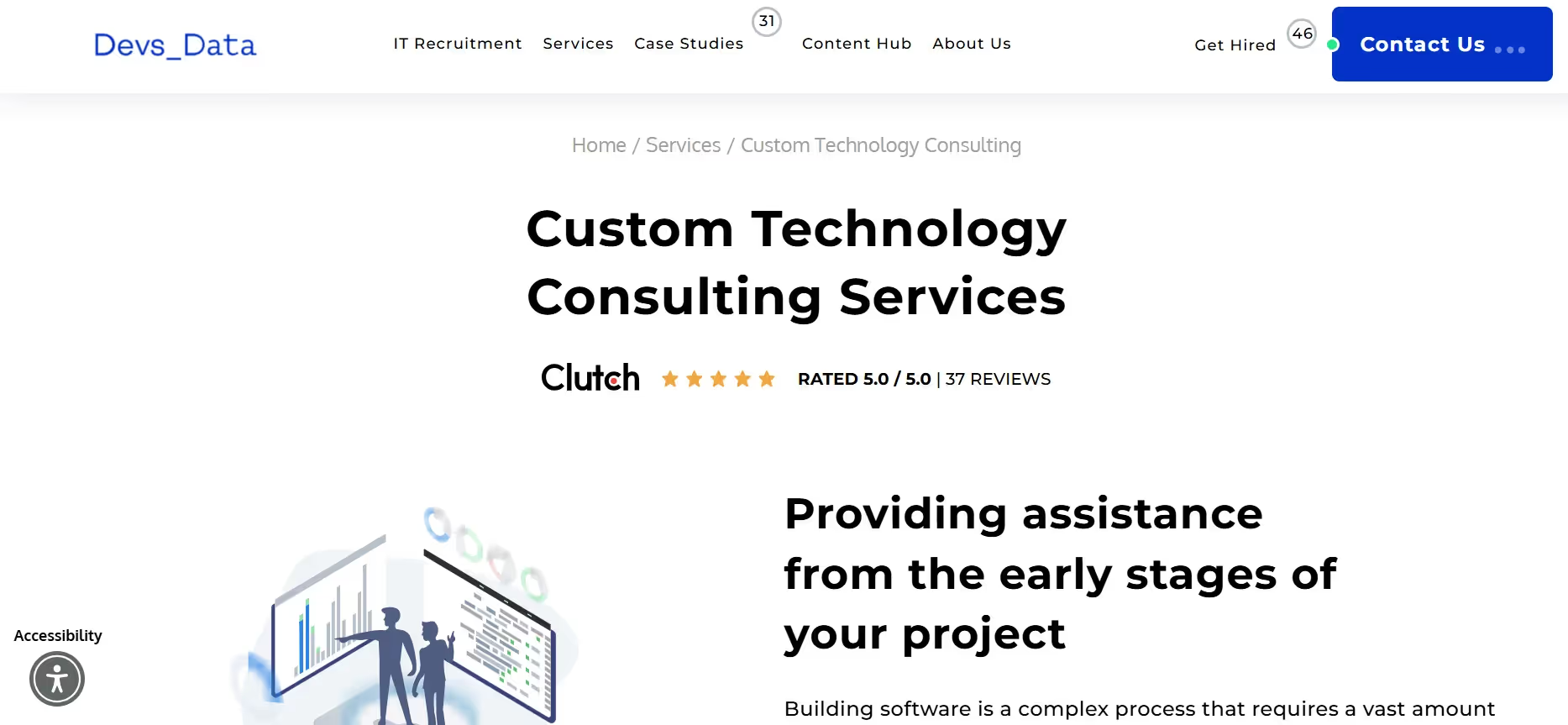
DevsData is a tech recruitment and custom software development company. According to their Clutch profile, they have a vetted network of veteran engineers, a presence across Europe and the U.S., and have delivered over 100 projects. Their database contains 60 000 technical candidates, and they specialise in building technology teams for hedge funds, VC‑backed startups and enterprises. Startups can hire DevsData for custom software development or to augment their team with experienced engineers in artificial intelligence, machine learning and backend systems.
8. Andersen Inc.
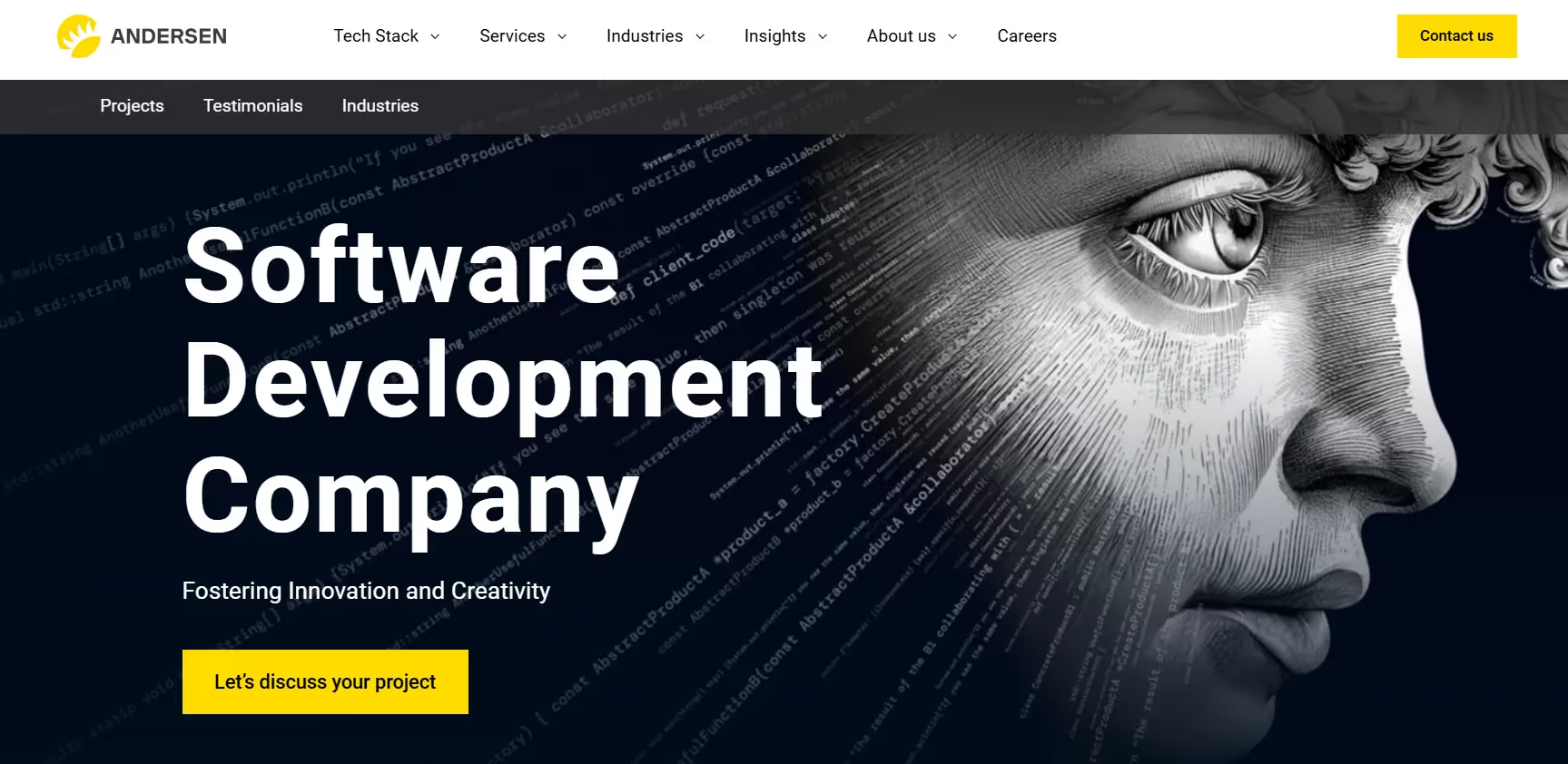
Andersen is a full‑cycle software development hub with over 3 500 in‑house experts, 18 office locations and 1 000 + global clients. The company has been operating for 18 years. Andersen positions itself as a strategic partner that addresses business needs from strategy and design through operationsandersenlab.com. They specialise in mobile, web and cloud development, DevOps, quality assurance and user‑interface design. Andersen’s scale and breadth make them a fit for founders who need both engineering and design resources. They also promote sustainability, social welfare and education initiatives, which may appeal to mission‑driven startups.
How Can You Pick the Right Outsourced Product Development Partner?
Choosing the right partner is strategic. With so many outsourced product development companies on the market, you need a clear checklist. Here are key steps we follow when advising founders:
- Clarify goals and scope. Are you looking for a quick prototype to test viability, or an end‑to‑end build? Outline your priorities—usability testing, scalability, compliance, etc. Without a clear brief, you’ll receive generic proposals.
- Understand provider categories. Offshore software firms usually offer staff augmentation for engineering tasks at lower rates. Software development partners go deeper, providing product managers, designers and cross‑functional teams. Technology solutions vendors deliver specific modules (e‑commerce checkout, machine‑learning models). Knowing what you need avoids misfit expectations.
- Ask about agile practices. Partners should be comfortable running sprints, using user stories, and delivering iterative demos. The 2024 agile report notes that cross‑functional teams are more productive and that digital tools (think Scrum boards, remote collaboration platforms) can cut cycle times by about 15% and reduce project failure rates by 25%.
- Evaluate product design services versus full‑stack tech teams. Some firms specialise in user research and user interface design. Others offer deep engineering. Match their strengths to your gaps. A strong design studio might not be the right pick if you need heavy data infrastructure.
- Review track record. Look for evidence of innovation, on‑time delivery and transparent communication. Interview former clients if possible. Outsourcing statistics show that quality control and data security worries 68% of companies—so ask how the provider protects intellectual property.
- Assess cultural fit and working rhythm. You’ll collaborate closely, sometimes across time zones. Look for teams who adjust to your working hours and provide overlapping coverage. Clear communication reduces rework and ensures you remain in control.
By following these steps, you reduce risk and build a partnership that feels like an extension of your team.
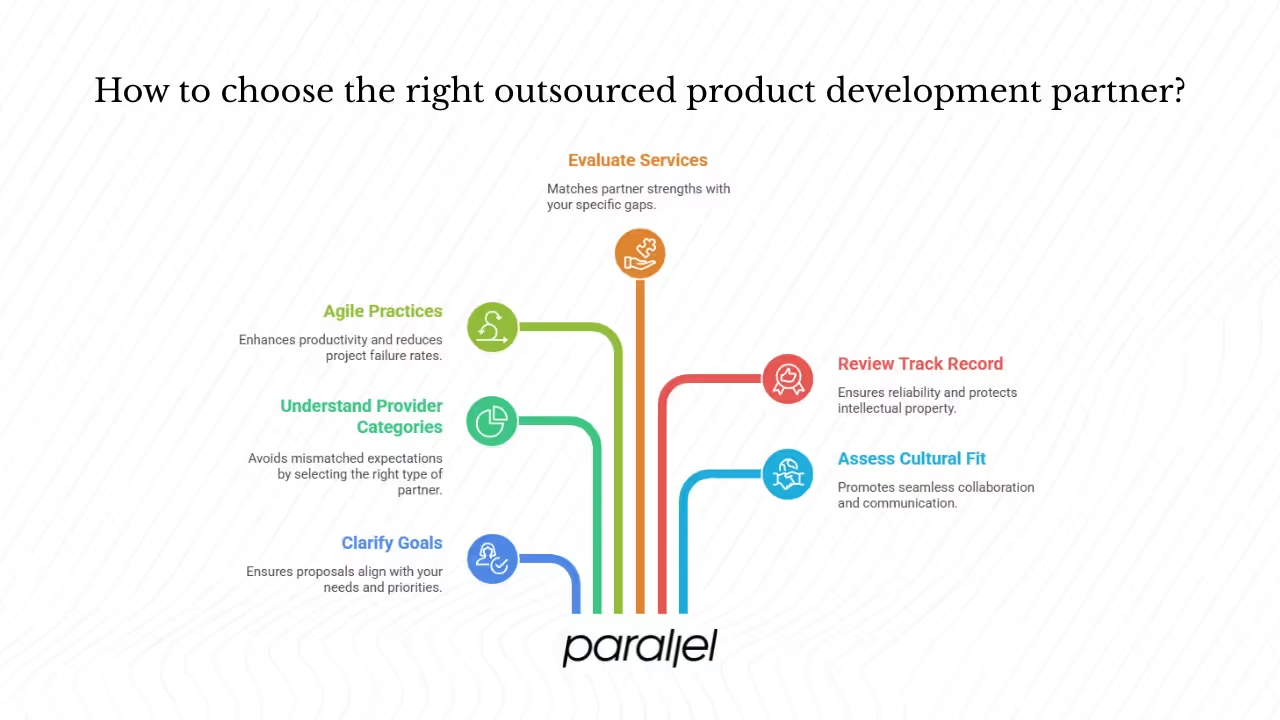
How Does Parallel Match Key Needs for Startups?
When we built Parallel, we structured our services around the common needs of early‑stage teams. Here’s a simple framework that helps founders decide what they need and illustrates how we meet each requirement:
This modularity is important. For example, if you’re an AI‑driven SaaS startup testing a new onboarding flow, you might only need user research and prototypes. A commerce platform, on the other hand, might need design, engineering and infrastructure. We adapt to both.
What Are the Benefits of Outsourcing Product Development?
Outsourcing isn’t a silver bullet, but when done thoughtfully, it delivers clear benefits:
- Faster time‑to‑market. Remote engineering teams can start immediately, compressing product cycles. The agile research cited earlier shows improved visibility and shorter cycles when cross‑functional teams use modern tools.
- Access to broader talent. You gain specialists who would be costly to hire full‑time—machine‑learning engineers, accessibility experts or hardware designers. DemandSage reports that 92% of G2000 companies use IT outsourcing, showing that even large enterprises tap external talent.
- Cost‑effective scaling. Fortunly notes that 43% of technology companies plan to increase outsourcing spend in 2025. Outsourcing allows you to ramp up during intense phases and scale back when things stabilise.
- External perspective. External teams bring experience from other industries. At Parallel, we’ve seen how applying patterns from consumer apps to enterprise tools can spark innovation. Research shows that teams using modern collaboration tools and cross‑functional setups boost productivity and reduce failure rates.
- Elastic support. Outsourced teams can be as small as a single designer or as large as a full engineering squad. This elasticity is crucial for startups that may need to pivot quickly.
When Should You Outsource Product Development?
Outsourcing works best when:
- You lack internal bandwidth or specialised skills. Your core team might excel at algorithms but not user research. Use outsourcing to fill that gap without long‑term hires.
- You need to move fast for a proof of concept. Time‑to‑market matters. A lean external team can build something real while you validate demand.
- You want to test innovation affordably. If you’re unsure about investing heavily in a concept, outsource the first build to contain risk.
- You seek a partner, not just contract code. The best partnerships feel like an extension of your team. They bring insight, challenge assumptions and help you think through the product. That’s what we aim for at Parallel.
Conclusion
Working with outsourced product development companies is no longer a last resort—it’s a pragmatic approach for early‑stage ventures. Statistics show that 300 000 U.S. jobs are outsourced each year and that the market for outsourcing continues to grow. Founders who embrace external partnerships free themselves to focus on vision, fundraising and market fit. Choosing among outsourced product development companies is a key decision that shapes speed and success. By selecting a partner aligned with your goals, culture and working style, you build momentum without diluting your mission. Use this list as a starting point, weigh which capabilities matter at your stage, and pick a partner who will accelerate your path to market.
FAQs
1) What is product development outsourcing?
Handing off design, engineering or idea validation to an external partner—often a remote team or specialist firm—so you gain expertise and speed while staying focused on strategy. This can include user research, interface design, engineering and testing.
2) What companies outsource production?
Many companies—from lean startups to large enterprises—outsource parts of their product builds. Companies like Google, WhatsApp and IKEA have used external engineering or design help for specific projects. Outsourcing in this context refers to product development, not physical manufacturing.
3) What are product development companies?
These are firms that design, engineer and deliver products on behalf of clients. They may offer product strategy, user research, industrial design, software engineering and agile delivery. Examples include the companies listed above—from Parallel to Andersen.
4) What are the five major stages of product development?
A common framework includes: (1) Ideation and concept development; (2) Design and prototyping; (3) Engineering or development; (4) Testing and validation; and (5) Launch and iteration. Many organisations adjust these stages, but the sequence—concept to design to build to test to launch—remains consistent.


.avif)
